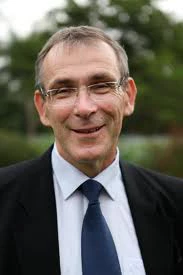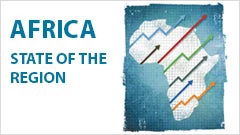
Andris Piebalgs is an experienced Latvian politician who occupied key positions in both national and European political fields. During the first Barroso Commission, starting in November 2004, he was the European Commissioner for Energy. In that capacity, he led the development of a more competitive, sustainable and secure European energy system, which is one of the crowning achievements of the Barroso I Commission. In doing so, he was instrumental in propelling EU energy issues into the centre of EU policy-making. In recognition of his leadership in European energy policy, The Economist magazine honoured him with the title "Eurocrat of the Year" in 2007. In 2009, Andris Piebalgs received the "Diamond Prize" from the Regional Chamber of Commerce in Katowice (Poland) for his work in developing a cohesive European Energy Policy for the further generations. In 2009, the Energy Efficiency Global Forum presented him the Energy Efficiency Visionary Awards for his "outstanding contributions to the advancement of energy efficiency".
Before joining the Commission, Andris Piebalgs pursued a political career, occupying strategic ministerial portfolios. He was also a high-ranking diplomat, helping Latvia to play its role in the EU.
Earlier in his career, while Latvia was still part of the Soviet Union, Andris Piebalgs worked as a teacher and was the Headmaster of the 1st Secondary School of Valmiera (1980-1990). He also served as Director of the Department in the Ministry of Education in Latvia.
In 1988, Latvian People's Front, an organisation that united more than 200 000 people, was established. Supporters of Latvian self-determination gained victory in the elections of the Latvian Parliament on 18 March 1990. It was the first time since the Soviet occupation that candidates from various political parties were allowed to take part. On 7 May 1990, Andris Piebalgs was appointed as Minister of Education in the new Government, and one year later, in August 1991, Latvia regained full independence. Andris Piebalgs' main task was then to put in place the first independent education system in Latvia.
In 1993, Andris Piebalgs won a seat in the Latvian Parliament, when the first elections after restoration of independence were held according to the Latvian election law. He served as the Chairman of the Budget and Finance Committee until 1994. At this time, he became Latvia's Finance Minister and Deputy Prime Minister.
From 1995 until 2003, he worked in the Latvian Diplomatic service. Andris Piebalgs first served as the Ambassador of Latvia in Estonia (1995-1997), where he helped to solve the sea border issue between the two states. In 1997 he became the Latvian Ambassador to the EU. In this capacity he helped to establish Latvia as the EU candidate country and led the accession negotiations, which resulted in Latvia's successful accession to the EU in 2004.
From 2003 to 2004, he was appointed Deputy Secretary of State for EU affairs at the Ministry of Foreign Affairs of Latvia. His role was instrumental in coordinating Latvia’s position in the European Council and all Council formations. At the time, he also established the new development assistance policy for Latvia.
Andris Piebalgs was born on 17 September 1957 in Valmiera, Latvia. Piebalgs is a graduate in Physics from the University of Latvia. In addition to Latvian, he speaks English, French, German and Russian. He is married and has three children. During his free time he likes to play tennis and to go skiing.


